By John McCarty, Self-Advocate in the Leadership Collective of Uniting for Change
Many people believe that people with intellectual and developmental disabilities (IDD) can’t learn and don’t belong in post secondary educational settings. As part of Uniting for Change and a former post secondary student, I can unequivocally say they are wrong.
A person with a disability who has the desire can and should pursue a post secondary education, including people with IDD. Being in a college classroom with appropriate support opens windows of possibilities for everyone, including non-disabled peers, professors, and staff. We all learn from each other, not just what is being formally taught as part of the curriculum. In this way, people with IDD add to the robust educational experience that is possible in post secondary settings.
For me, John McCarty, furthering my education was basically three things: two classes on the Perimeter College campus of Georgia State University (GSU) and General Educational Development (GED) prep classes.
The idea of a diploma was something I had on my mind from a very early age. In Michigan, where I was fully included in 4th and 5th grades, I heard my mom talking about “diploma track kids.” I really wanted to be one of those kids. The “diploma track kids” seemed to have a brighter future with a lot more options. They would be able to maybe go to college or get a real job. That would put them on the path to independent lives and full community inclusion.
When I was going to start 6th grade, we moved to Georgia, and we found the schools completely segregated. The students with disabilities were separate from the students without disabilities. It seemed to me at this point that I would never get a diploma. All of this was before I could effectively communicate through spelling, which I learned when I was about 20 years old.
When I learned to use the letterboard my world opened up. I relished the lessons on a variety of topics, from macroeconomics to Civil War and WWII history, to math and geology, to complex current events involving politics.
A chance came up for taking a class on the Perimeter College campus of Georgia State University. The class was a remote Duke University House Course called Beyond Christian Intentions: Colonialism, Evangelism & Reconciliation in Native American Communities. This was a six-week course that ended with a group project. From there, I took another class— Physics. A retired physicist taught a University of Virginia course called How Things Work. A small voice kept niggling the back part of my brain. I still hoped to be a diploma kid, and now I saw a way.
A family friend and advocate arranged for me and some other young guys, ranging in age from 17 to 22, to meet with the disability coordinator and the dean of adult education at Gwinnett Technical College where GED prep classes are conducted.
The dean had us take the Test of Adult Basic Education (TABE) at the highest level, hired a teacher who was open to working with a bunch of guys who spell to communicate, and she scheduled a six-week class. The class was intense; but we really felt intellectually prepared.
We registered to take the GED, requesting accommodations. Pearson flat out denied the request for a communication partner. The person in charge of all accommodations for testing said she would never allow a communication partner.
I never got my GED. But that time I spent on a college campus remains a bright spot. My confidence went through the roof, and my overall life joy went with it. People with IDD deserve the same opportunities as their peers.
Uniting for Change is a statewide, grassroots network of self-advocates, allies, and supporters in Georgia that was founded in 2019 through a grant from the Georgia Council on Developmental Disabilities. This network is committed to advocating, organizing, showing up, and being heard. Uniting for Change members seek to share information, create opportunities, and influence change.
